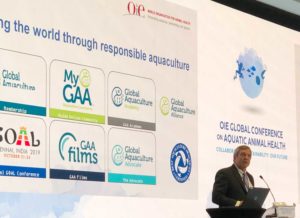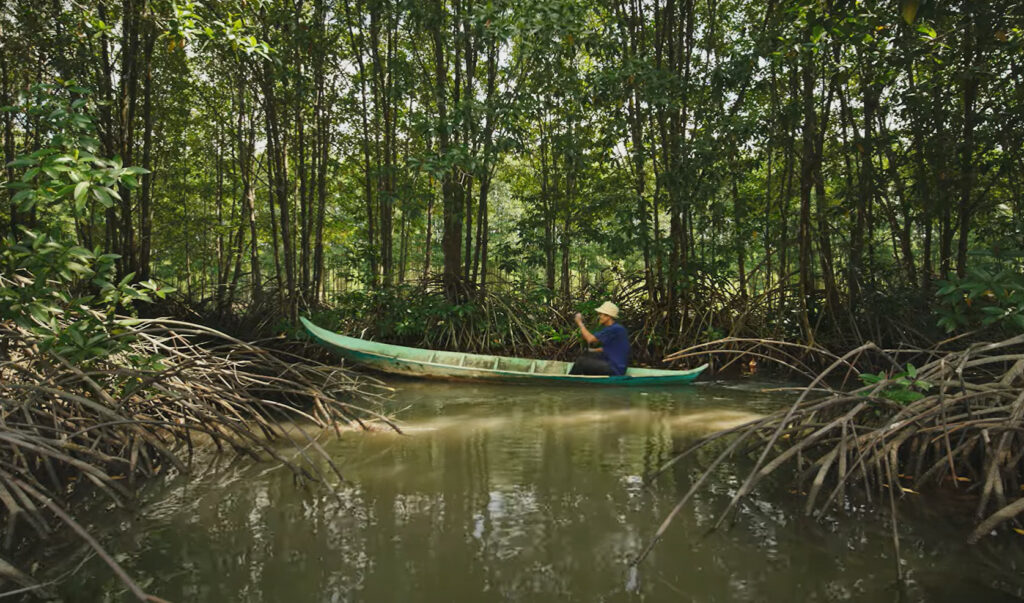Chamberlain Keynotes Animal Health Conference in Chile
 Global Aquaculture Alliance President George Chamberlain was a keynote speaker at the World Organization for Animal Health’s Global Conference on Aquatic Animal Health in Santiago, Chile, from April 2 to 4.
Global Aquaculture Alliance President George Chamberlain was a keynote speaker at the World Organization for Animal Health’s Global Conference on Aquatic Animal Health in Santiago, Chile, from April 2 to 4.
Featuring more than 30 speakers, the conference highlighted the critical contribution of aquatic animal health programs to improving aquaculture productivity and sustainability. It also raised awareness of the need for good governance of veterinary services and aquatic animal health services.
Titled “The Global Seafood Revolution,” Chamberlain’s 30-minute keynote presentation on Day 1 of the conference offered a 30,000-foot view of the global seafood landscape, highlighting aquaculture’s role in meeting the globe’s appetite for seafood.
“What is the real demand for seafood going to be, because there are so many projections? ” said Chamberlain, citing the World Bank’s “Fish to 2030: Prospects for Fisheries and Aquaculture” report from 2013. “And the result of that survey is that it’s going to be near the top of all of the estimates, not just because the population is increasing but per capita consumption of seafood is increasing at the same time, especially amongst the middle class in China and throughout Asia.”
“The other factor that’s really interesting is a recent report that appeared in Lancet called ‘Eat,’” he continued. “They took a look at what the human diet should be, not only for our health but for the health of the planet., so the planet can support 10 billion people by the year 2050. [The report says] our consumption of red meat and eggs needs to decline, but our consumption of seafood needs to increase. Another reason to be very optimistic about the future.”
Chamberlain then went on to discuss the challenges facing aquaculture, with disease being the No. 1 challenge. The others are the environment, feed (i.e. reliance on marine ingredients), financing and market acceptance.
“We need control, efficiency and trust. Under control, it comes down to disease risk and environmental impact. And then for efficiency, we have to learn to produce more and more with less and less. It seems like a paradox. But we have to learn to produce with less land, less feed, less energy, less labor and so on. And, for trust, do we have the social license to operate? There are areas in the world where aquaculture is not welcomed,” said Chamberlain.
Presentations from Global Conference on Aquatic Animal Health are available on YouTube at https://youtu.be/Cq9OSPCY3dc.




